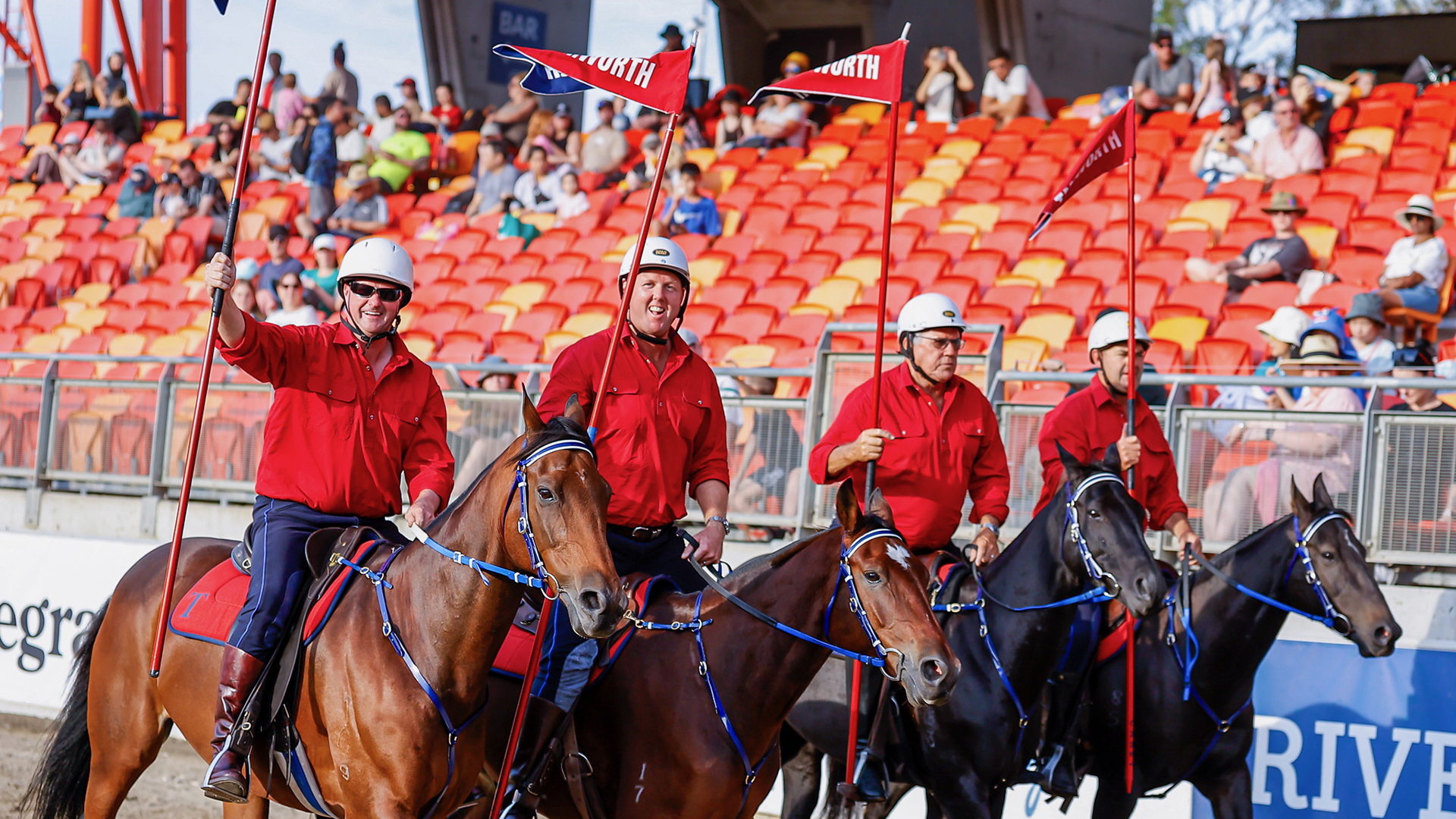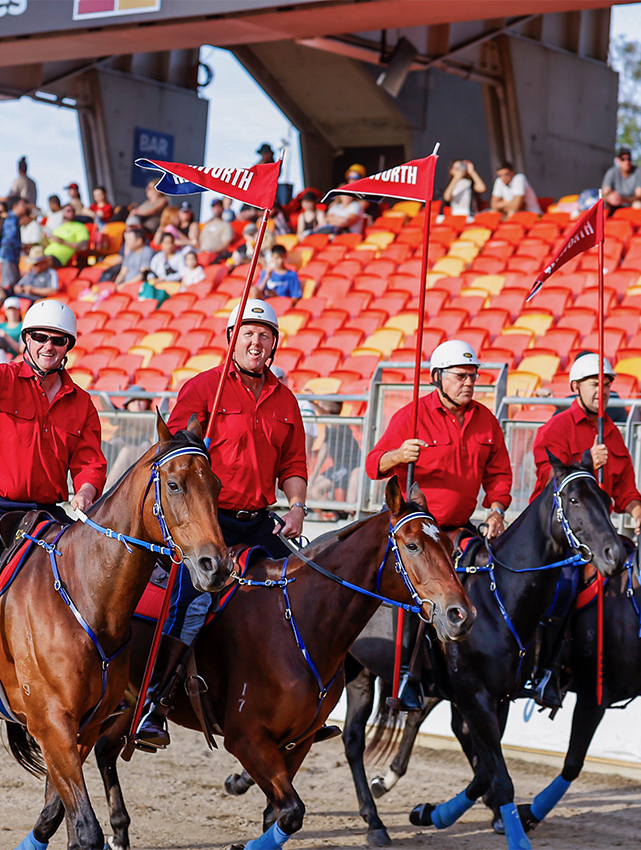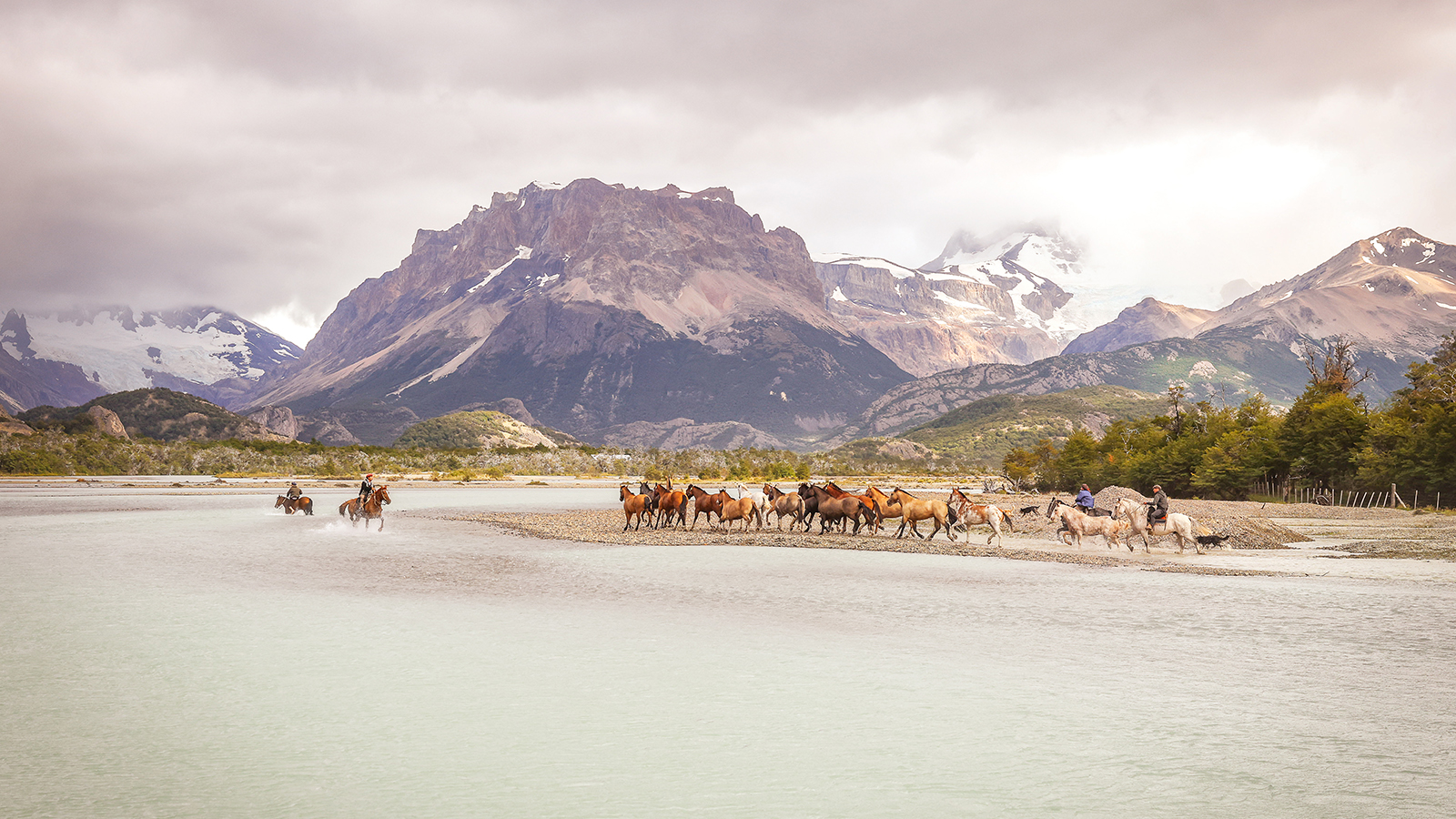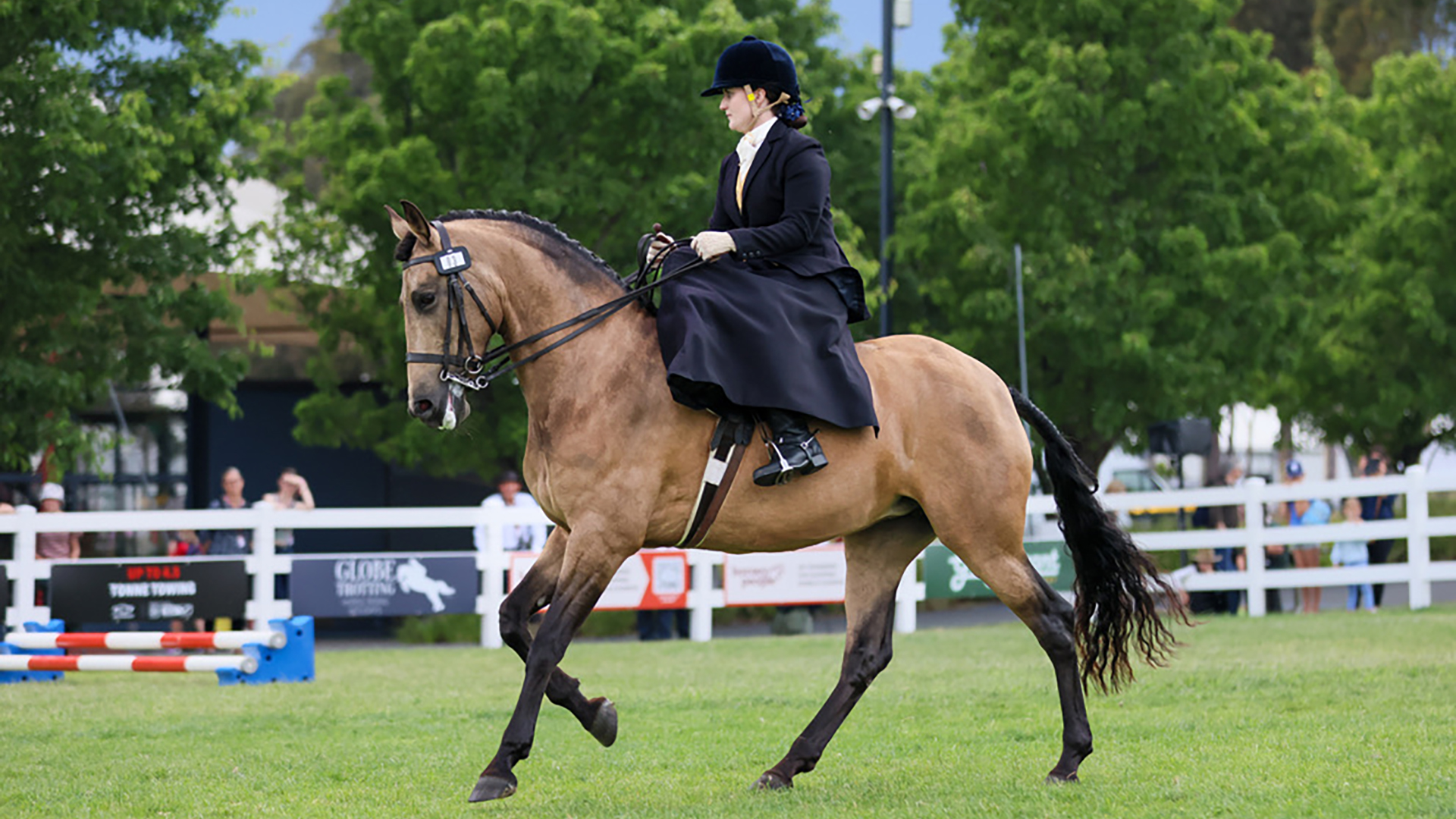Twelve years ago, Scott Miller hadn’t even heard of tentpegging. Now, he’s gearing up to represent Australia again on the international stage after a whirlwind year of success.
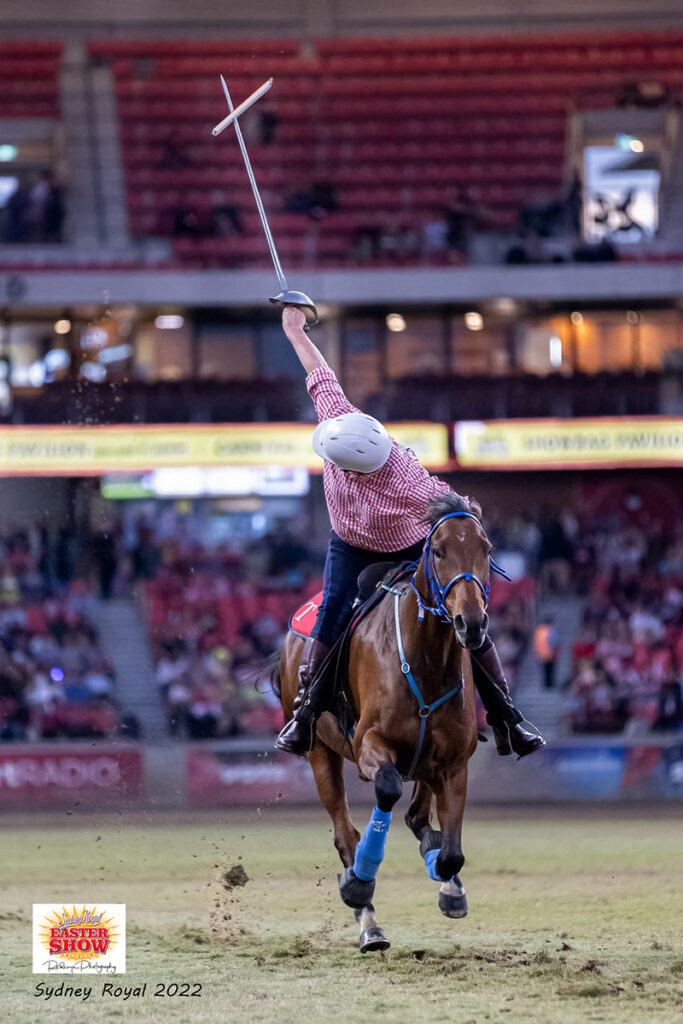
Scott Miller and Mr Wilson are very successful in the discipline of tentpegging; here they are pictured at the Sydney Royal Easter Show in 2022. Image supplied.
Growing up on his family farm on New South Wales’s Northern Tablelands, Scott Miller’s love of horses has been an integral part of his life from a young age. From chasing cattle through steep and rocky country on horseback to taking part in local pony clubs and shows, Scott says his constant exposure to the equine world led to horse riding becoming his happy place. “We’ve always had horses, whether they be work horses or show horses, and they’re still used today. I really love it. I love to put the phone on silent, put some music on, and go for a ride. I call it my yoga – horse riding is my yoga.”
“It’s something that I got into
10 or 12 years ago… I became
addicted pretty quickly…”
Like many who take part in the sport of tentpegging, it wasn’t something Scott had grown up with, but he quickly found that he already had many of the skills needed to succeed. “It’s something that I got into 10 or 12 years ago, just through some mutual friends. We were at a campdraft day somewhere, and they just said, ‘We’re going to go do some tentpegging things, do you want to come have a go?’ And I said, ‘Oh yeah, we’re here, let’s have a crack.’ Then I became addicted pretty quickly.”
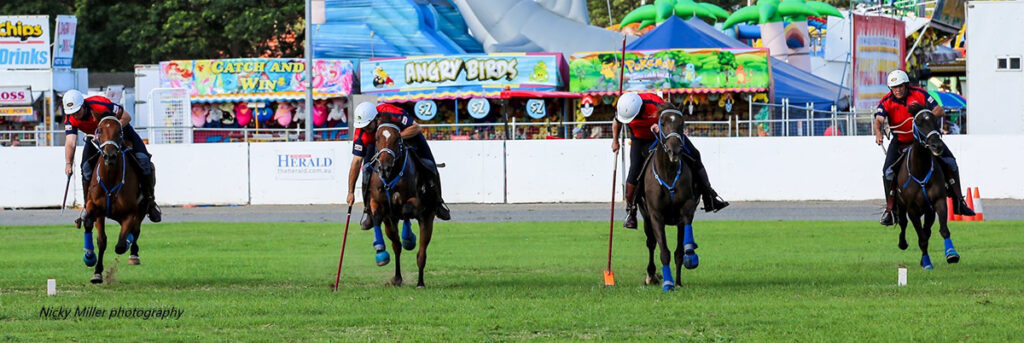
Despite his relatively short involvement in the sport, Scott has already tasted success internationally, representing Australia twice in 2019 – first in South Africa for the International Tentpegging Test and then in Germany for the International German Championships. Unfortunately for the Australian team, overseas conflict at the time meant they missed out on taking part in the 2023 Tentpegging World Cup – a prestigious event on every competitor’s bucket list that brings together teams from 45 different countries to compete at the highest level. The event’s organiser, the International Tent Pegging Federation (ITPF), an association sanctioned by the FEI and established in 2013, has seen its numbers grow exponentially from 19 federations in its first year to 46 federations spread out over five continents – a testament to the rising popularity of the sport. With the ITPF in the midst of planning the 2026 World Cup, Scott’s already looking excitedly ahead. “In 2025, there’s a qualifier which we’ve been invited to – it just hasn’t been firmed up when and where it is, but Australia is pretty keen to put a team forward to see how we go.”
Closer to home, Scott and his team – the Tamworth Tentpeggers – enjoyed major success across the country in 2024, taking out the Australian, Queensland, and New South Wales Championship titles, the latter qualifying the team for the 2025 Sydney Royal Easter Show. “We had a really good year last year,” Scott says. “We’ve got a really good team and are really lucky that we’re four great mates.”
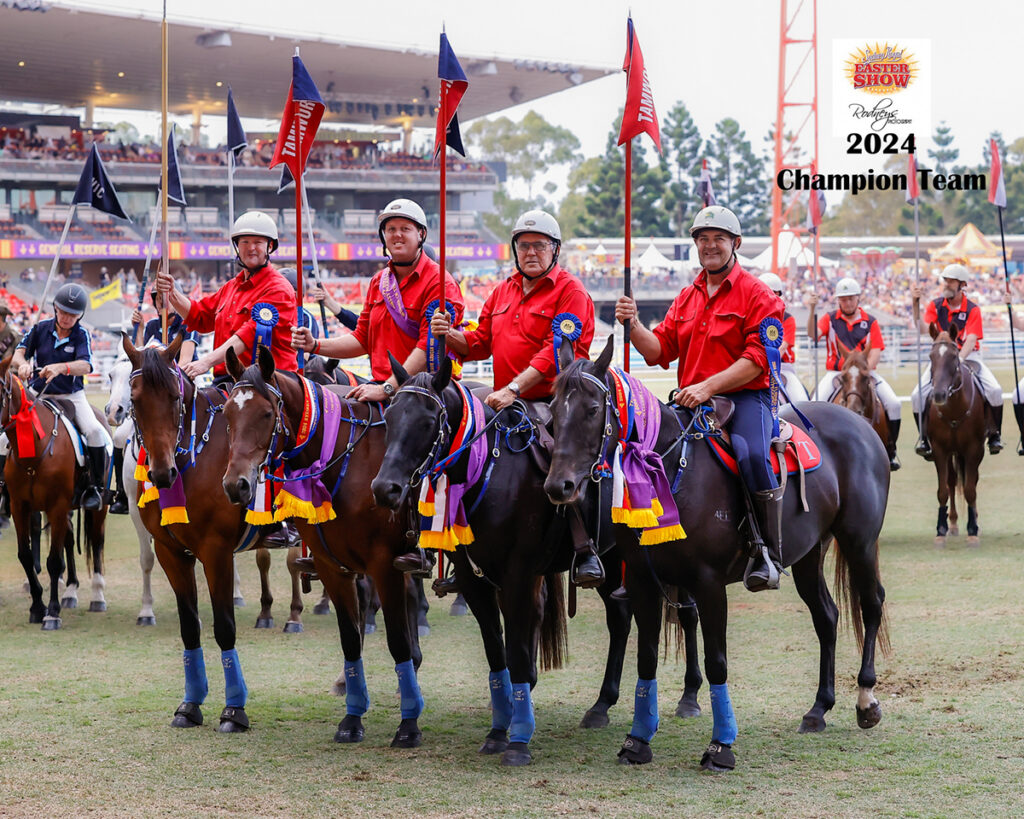
The Tamworth Tentpeggers were the 2024 Sydney Royal Easter Show Champions. L-R: Scott Miller, Bryson Roser, Barry Biffin, Todd Carey. Image by Rodney’s Photography.
PRACTISE MAKES PERFECT
Finding a suitable horse can often be the most difficult aspect of taking up the sport, Scott admits. “The trickiest part is having a horse that is adaptable to the situation yet is still your horse and you can be cool, calm, and collected and form that relationship with. That’s got to be the hardest part.”
In Australia, the majority of horses used for tentpegging are Stockhorses, chosen in part due to their calm, reliable, and steady temperaments. “The Stockhorses are good because they can go fast, and they don’t get too excited or get too hot.” Scott’s own tentpegging Stockhorse, a trusty 16-year-old bay gelding named Mr Wilson, has been his go-to teammate for years. “He’s number one at the moment,” he shares. “He’s the Sydney Show champion, and he does everything for us.”
“You’ll either fall off or become
a better rider, one of the two.”
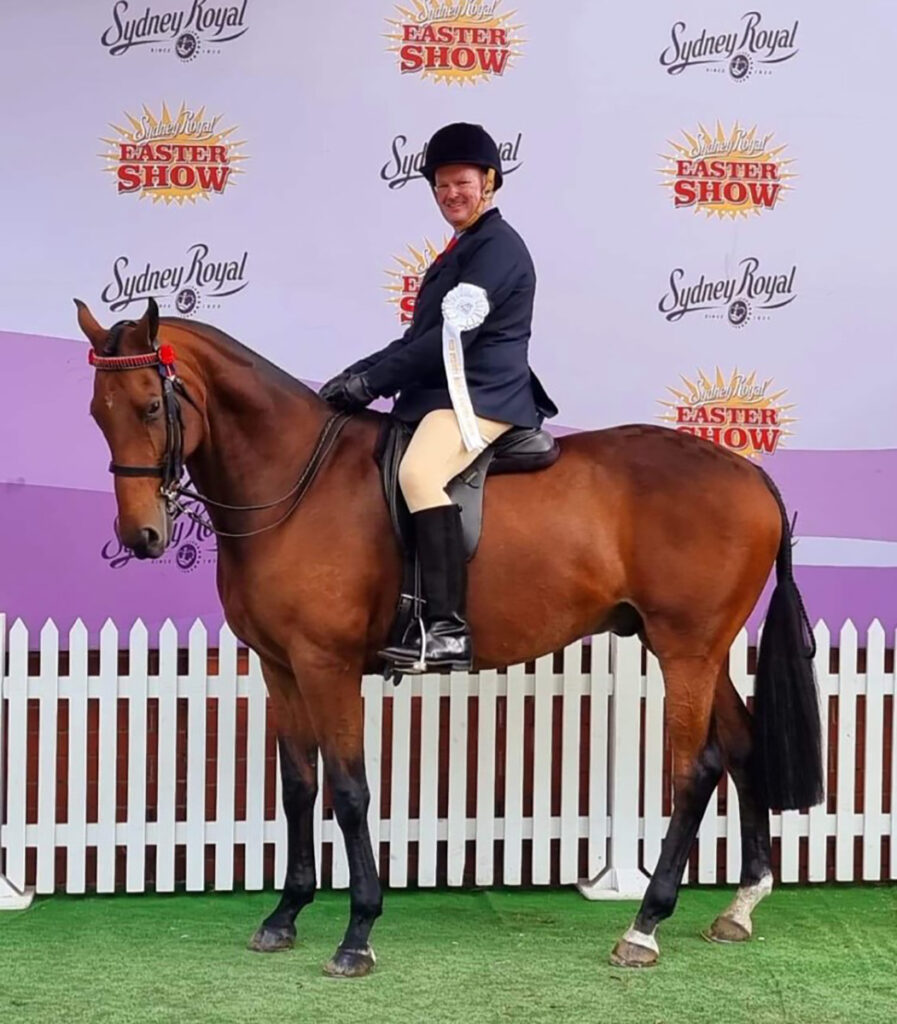
Scott with his multi-talented Stockhorse, Mr Wilson. Image supplied.
While training a horse in tentpegging can be a challenge at times, Scott says it’s a matter of slow and steady. “Lots of slow work to start off with. Lots of walk, trot, then canter single-file action, and then you can do some work with another pair. Once you build that confidence and can reward the horse for the job done and he knows what he needs to do, the majority of the time they’ll understand quickly. They know what the rule is, and they just do it.
“It’s a pretty good relationship you need to develop with that horse to be keen to swing off the side. You’re certainly out of the saddle, and you’re at his mercy, really. If you’ve got a good horse, you’re laughing. If you’ve got one that’s not so good, you’ll either fall off or become a better rider; one of the two.
But for such an old and well-established sport, Australian competitor numbers have dwindled in recent years. “Unfortunately, like most sports at the moment, since COVID there’s been a bit of a decline in numbers. Whilst there has been a lot of interest shown by the younger people – the pony clubs are a really good supporter of our sport – you find a lot of people can do other activities on a more regular basis closer to home.”
Despite smaller numbers, Scott has found that tentpegging opens doors for those entering new phases of their lives, and while the skills required can be taught at any age, older athletes often give standout performances – in part due to their previous participation in other sports such as campdrafting and polocrosse. “We’re finding that a lot of our people that are joining the sport are doing it from their mid-30s,” Scott reveals. “And at the age of mid-40s to 50s, you’re still quite competitive. You’ve got a lot of experience, and you’ve got great horsemanship, and it’s not new.”
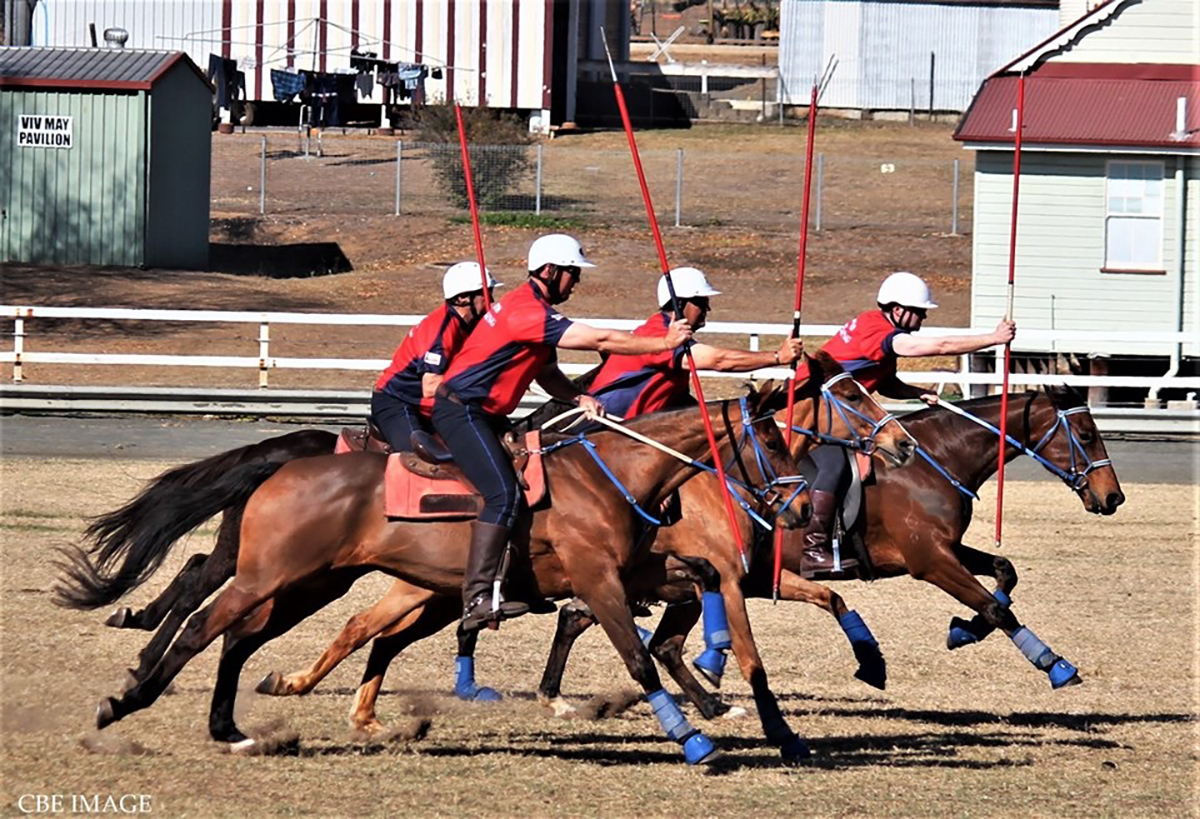
Scott says tentpegging is a very social sport. Image by CBE Images.
“It’s family motivated. You can still go along, have a good time. It’s not ultra-competitive where there’s tears shed because you miss the peg. It’s a, ‘We missed that one.’ Then, move on to the next one. It certainly is a lot of fun. It’s certainly a very social sport.”
And beginning the sport is easy, according to Scott: “You haven’t got to have the tools. If you’ve got a broomstick, that’s all you need to start. A broomstick, a horse, and an ice-cream container lid. It can be that simple.”
“It’s really rewarding for the young kids if you can dig that ice-cream container into the ground so it sticks up in the air, and they ride past and hit it with a broom. Mate, the smile on their face you can’t pay money for – and it goes on from there. Many hours practising, lots of backwards and forwards, and lots of time spent in the saddle.”
With many more tentpegging events to organise – and compete in – Scott’s hopeful the sport will grow in the years ahead. “We’re always looking for new members. If people would like to come and have a go, there’s often ‘come and try’ days.
“There’s just nothing I’ve found as rewarding yet as when you can get that horse and form that relationship, work as a team, and get a job done,” he says. “Whether it be chasing a cow or picking up a peg and riding around in the Sydney Show arena.”
To find out more about tentpegging, or to find your local club, visit the Australian Tentpegging Association’s website. EQ
